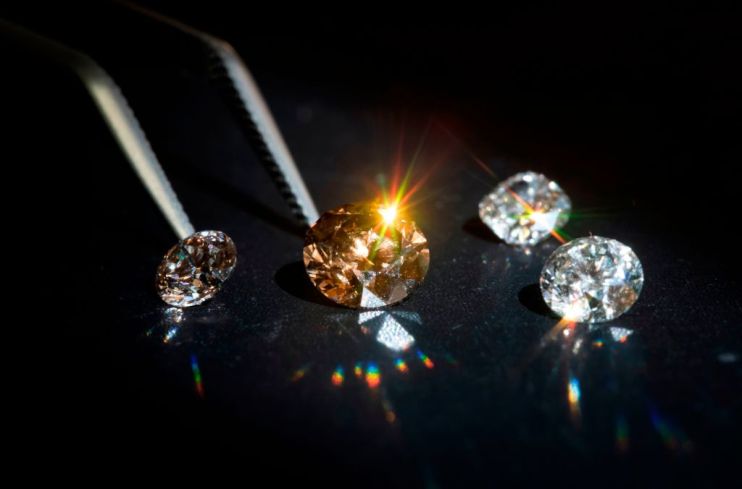How lab-grown diamonds could solve ethical and price problems to be next crown jewel

Petra Diamonds share price took a three per cent tumble on Friday morning, following news that the number of rough diamonds it sold slumped by 33 per cent.
Adjusted profit before tax also fell by a whopping 95 per cent $8.3m (£6.7m), driven by a drive decline in total diamond production.
The FTSE 250 company warned that it expected rough diamond demand to continue to be subdued going forward, largely due to a prolonged weakness in the Chinese market and a demand for lab-grown diamond sales in the bridal jewellery market.
Petra Diamonds said: “As a result, the group expects ongoing price volatility in the short-term, but remains confident that the structural supply deficit will support medium to long-term diamond prices.”
Lab grown diamonds, which are created using extreme pressure and heat inside a machine rather than in the depths of the earth, have grown in popularity in recent years largely because of their ethical appeal and cheaper price point.
According to a study by London-based diamond company, Queensmith, lab diamonds are typically 60 per cent to 85 per cent cheaper than natural diamonds. It also said that the market for lab-grown diamonds has increased by 2,860 per cent in just five years.
A spokesperson for the brand said: “Lab-grown diamonds provide a great alternative that is more affordable and less impactful on the environment, which is a big concern for most people. The trend of people moving towards lab-grown alternatives isn’t going away.
“Despite 70 per cent saying they would be willing to opt for a lab-grown diamond, our research shows 46 per cent were not aware lab diamonds even existed. As that number continues to go down, we expect demand for lab-grown diamonds to continue to rise.”
Concerns about traditional diamonds and how they are sourced have been a source of controversy for decades.
In 2012, the billionaire Oppenheimer clan rocket markets when they announced they would sell their 40 per cent stake in diamond giant De Beers.
The South-African mining company had been instrumental in drumming into consumers minds that the gem was a precious and valuable item – most notably with their infamous 1947 tagline ‘Diamonds are forever’.
“It was intriguing that the Oppenheimer family sold De Beers over a decade ago when that fear [how diamonds are sourced] was very high,” Russ Mould, investment director at AJ Bell, told City A.M.
De Beers, which is synonymous with high end jewellery, has also dipped its toe into the market, launching LightBox Jewellery in 2018 which exclusively sells lab-grown diamonds.
However, the company recently called off a trial sale of lab made engagement rings, citing a lack of business prospects for the decision.
While the company may not see total profitability in the market, many others do.
High street jeweller Pandora has been ramping up production of lab grown diamonds in recent years and revenues in this division reached a stable DKK 32m (£3.69m) according to its second quarter results published in August.
A spokesperson said: “Pandora continues to see vast growth opportunities for the platform… [and it’s new collections will] widen consumer appeal and will be backed by an exciting new marketing campaign which centres around Pandora key ideology – democratising diamonds.
“The expansion is the next step on Pandora’s journey to build out a significant presence in the lab-grown diamonds market.”